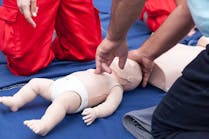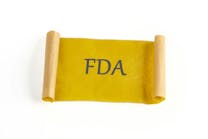According to the Mayo Clinic News Network, like the maps that drivers use to get from one place to another, the goal of a medical diagnosis is to get you from where you are to where you want to be. A diagnosis takes a patient from symptoms to treatment, such as from lump to cure in the case of breast cancer.
Medical "road maps" are built from painstakingly selected patient data that clarify risk factors, like a BRCA mutation for breast cancer, or suggest treatment based on a tumor's characteristics or phenotype, but Mayo Clinic researchers wondered if there was more to learn from those data, according to a news release from the clinic.
"The astounding genetic and phenotypic variation in cancer is well-known; yet almost all research and clinical practice focuses on cohorts of patients where risk factors are averaged together," explains Hu Li, PhD, a Mayo Clinic Systems Pharmacologist, and senior author on a paper in Genome Research.
Li brought together a team of experts to explore data pooled from 90 patients with breast cancer to see how deeply these data could be mined. Together, the patients had a diverse assortment of mutations linked to disease.





